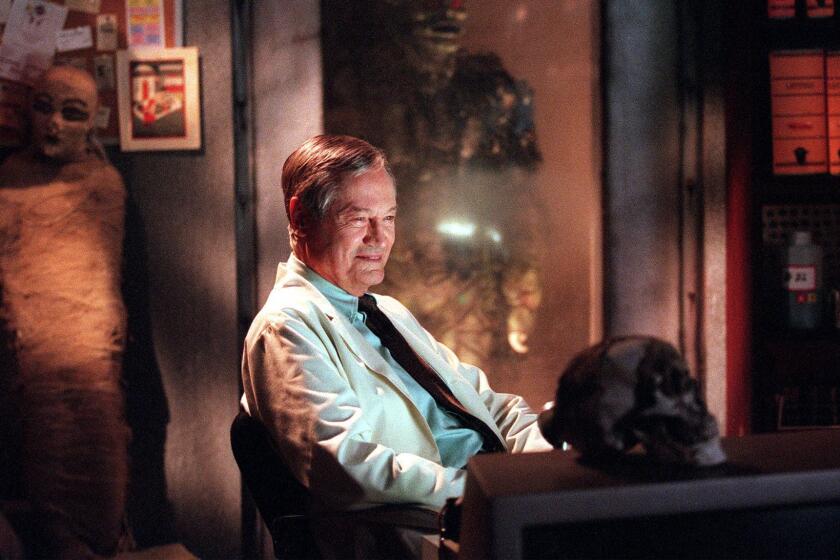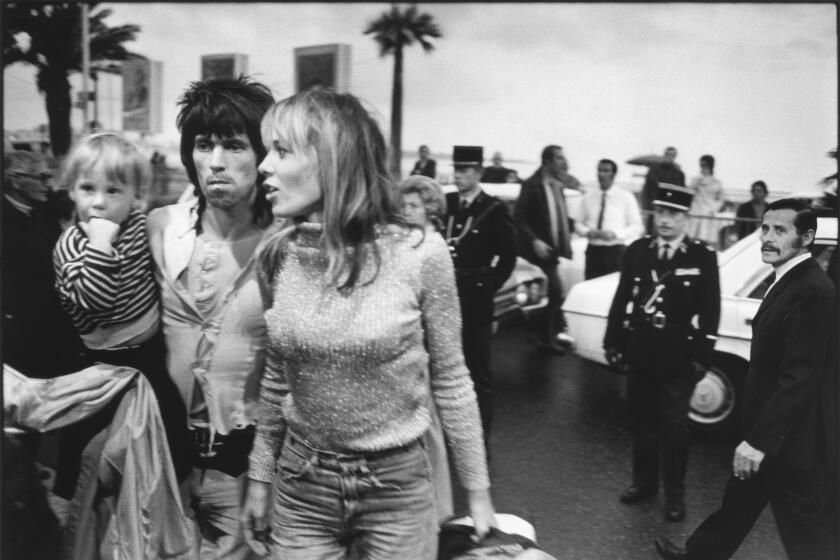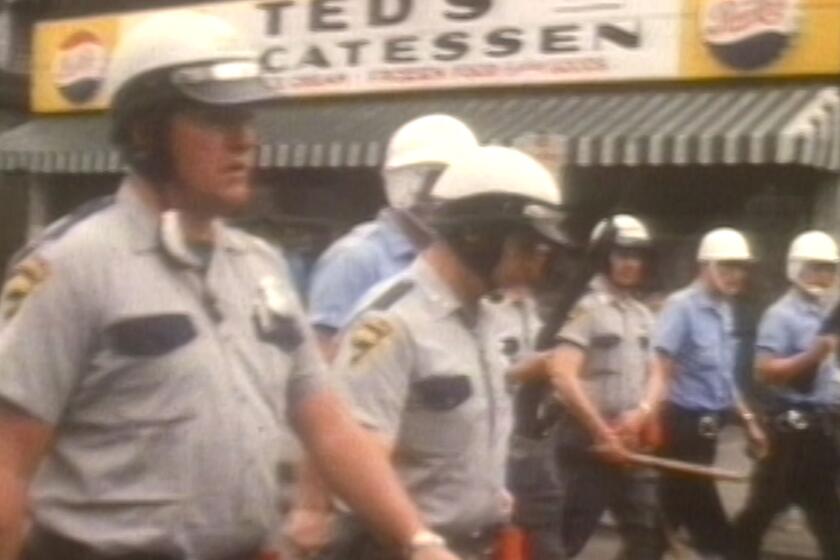A new era of secrets and spies in Hollywood
There is a scene that bookends “No Way Out,” the 1987 espionage thriller starring Kevin Costner. He’s a naval officer, a hero, being interrogated about the murder of the secretary of Defense’s mistress. There are hints that he might be a double agent. You don’t know who is behind the glass watching the grilling. As the film unfolds, he seduces the mistress and is hired by her lover, an icy Gene Hackman. The “is he or isn’t he?” question keeps the tension high. Finally, a door opens, we see the face behind the glass and all the puzzle pieces snap into place.
That moment, or one like it, can be found in nearly every spy film. Indeed, “No Way Out” was a remake of a 1948 film, “The Big Clock,” which was based on Kenneth Fearing’s 1946 novel. The brainwashing of “The Manchurian Candidate,” conducted during the Korean War for the 1962 film version starring Frank Sinatra, was moved up to the Gulf War for a 2004 reimagining with Denzel Washington as its star. For Sgt. Brody (Damian Lewis) in Showtime’s “Homeland,” Al Qaeda was doing the brainwashing that turned him into a time bomb.
Whether the antagonists are Russians or Islamic fundamentalists, the cat and mouse game is fundamentally the same — elaborate set-ups, secrets traded, lies, betrayals, covert operatives, criminal acts. The not knowing which side someone is on saturates every scene. Given the current international climate, which is growing increasingly chilly, and the gravitational pull of the themes, get ready for a major Cold War resurgence on the big screen.
While this isn’t great news geopolitically, movie buffs may see it otherwise. From film’s early days, the machinations behind the ideals have been creative triggers for Hollywood classics. Exceptional thrillers, satires, dramas and tragedies have tackled the themes in ways that are at times frighteningly real, at others, completely surreal.
Whatever the style, we depend on the movies to give us risk-free ways to assess, process, dig into and escape our collective anxiety about global tensions. And we are particularly drawn to the shadows. The characters — good and bad — are complex, the stakes are high, the choices are a lot like Rick’s in “Casablanca,” where the greater good trumps the problems of the few in this crazy world.
Television is already there. With its ability to follow the spy trade over time, it has been setting the Cold War/war on terror agenda in thrilling ways for a number of years. For me, Showtime’s “Homeland” remains the gold standard as it takes us deep inside the unsettling complexities of homeland security. Claire Danes is brilliant as the bipolar CIA agent tracking terrorists’ cells, Mandy Patinkin extraordinary at burying emotions and secrets as the mind behind the black ops.
I still love the real-time conceit of parsing a single day over the course of a season in Fox’s new-edition “24: Live Another Day.” Kiefer Sutherland’s rogue agent is now a wanted man, the counter-terrorist unit he once worked for is after him, and the tease of the first two episodes has me hooked. I’ve been seduced by the SpiesRUs stories too: the embedded Soviet “married” couple in FX’s “The Americans,” and NBC’s “The Blacklist,” where the FBI agent played by Megan Boone has just discovered a traitor in her bed. There is so much rich spy craft on TV that my DVR queue is reaching saturation levels, while the networks promise more espionage is on its way.
On the big screen, the subtext of world domination by evil forces hovers around the edges of the comic book franchise films — including this year’s “Captain America: The Winter Soldier,” “The Amazing Spider Man 2” and “Godzilla.” It’s just that in film, the Cold War has seen better days.
You could sense that a serious new era of secrets and spies was in the offing when word leaked a few weeks ago that Tom Hanks was attached to a thriller based on the true story of James Donovan, an American attorney enlisted by the CIA to slip behind enemy lines and negotiate the release of a U-2 pilot downed in Russia. Steven Spielberg might direct. Lots of “ifs” but another indication that the Cold War is heating up in Los Angeles too.
I trace glimmers of this return to 2006 and “The Good Shepherd,” starring Matt Damon. Directed by Robert De Niro, it was a cynical look back at the CIA’s beginnings. The ethical territory it covered suggested that filmmakers were finding new ways to go at old Cold War conceits.
The first major strike of the modern chill came in 2012 with “Zero Dark Thirty,” which followed the decade-long hunt for Al Qaeda leader Osama bin Laden. Director Kathryn Bigelow made the spy trade present tense in powerful ways. You knew the film had struck a nerve when Washington held hearings about the veracity of tactics attributed to the CIA in the picture.
We’ve also seen a revisionist James Bond emerge, finally. The smooth-operating Bond who worked so well in the “Goldfinger” days became laughable heading into the 21st century. In 1999’s “The World Is Not Enough,” it was hard to tell which plot — the assassin’s or the film’s — fell apart faster. Casting the craggy Daniel Craig in the title role signaled a shift, and when “Skyfall” landed in 2012, it was clear that Bond had gotten his mojo back.
Yes, there is an extreme villain, played by a bizarrely blond Javier Bardem, and a Bond girl too, but what sets “Skyfall” apart is the emotions that both exist and are exposed. A heart-to-heart between Bond and Judi Dench’s M, steely yet human facing the final chapter she knows is coming, is strikingly moving.
“Mission: Impossible” has had its ups and downs, but 2011’s exciting “Ghost Protocol,” with its layers of deceit and disavowing, made “Mission” au courant again. I’m curious to see where the next one will take us in 2015.
The films adapted from John le Carré’s novels are some of the most sophisticated and gripping of the Cold War class, from “The Spy Who Came in From the Cold” (1965), with a British secret agent played by Richard Burton behind the Berlin Wall, to 2011’s “Tinker Tailor Soldier Spy,” in which a semi-retired spy played by Gary Oldman returns to unearth a Soviet mole burrowed deep in the heart of MI6.
Cold war is by its nefarious nature fertile terrain for imaginative minds. Few directors captured the collective paranoia of the McCarthy era better than Alfred Hitchcock in 1959’s “North by Northwest.” It is one thing to have spies keeping an eye on things, quite another to be mistaken for one.
Often, timing unexpectedly and uncomfortably favors filmmakers. The original “Manchurian Candidate,” starring Sinatra and Laurence Harvey, came out at the height of the Cuban Missile Crisis. The real-time nuclear stand-off no doubt contributed at least a little to the film’s paranoid appeal.
At the height of the Cold War, some of the most effective films cut through the dread using humor and satire. In 1964’s “Dr. Strangelove or: How I Learned to Stop Worrying and Love the Bomb,” what is particularly smart is the way Stanley Kubrick used the antics of Peter Sellers and George C. Scott to suggest that perhaps what we should be worrying about more than the bomb were the alarmists.
The inconvenient truth that history tends to practically repeat is both a blessing and a curse for filmmakers. How to keep reinventing the wheel in riveting ways? When Tom Clancy’s “The Hunt for Red October” was adapted in 1990, technology played a key role in a tricked-out Soviet sub captained by a marvelously enigmatic Sean Connery. What seemed so novel then has morphed into the drone debate of today and provides a major story line for the new “24.”
These films tap into that most basic desire to get past all the misinformation and disinformation so we know for certain who the real enemy is. Unfortunately, rarely is it so clear-cut; in fact, the cloudier the better — at least in the movies.
“The Quiet American” in 2002 dealt with that conundrum particularly well. The film, based on the Graham Greene novel and directed by Phillip Noyce, caught one of those points in history when we’re on the cusp — a cold war becoming hot. In this case, it is Vietnam, with Michael Caine exceptional as the British reporter languidly observing and Brendan Fraser the U.S. undercover operator quietly stoking the fires. Though one man will live and one will die, both betray, both compromise, and the film leaves you wondering who, if anyone, was in the right.
At the moment, we’re on the cusp again. Hot spots like Iraq and Afghanistan move into cold territory. Troops move out, the U.S. presence fades — or so we are led to believe. In life as in the best films, it pays to play close attention for the next scene.
More to Read
Only good movies
Get the Indie Focus newsletter, Mark Olsen's weekly guide to the world of cinema.
You may occasionally receive promotional content from the Los Angeles Times.







